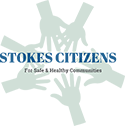Community and faith-based organizations are encouraged to prepare for the possibility of a coronavirus disease 2019 (COVID-19) outbreak in their communities.
Use this checklist to protect the health of those you serve and staff in your care.
PLAN AND PREPARE
- Update your emergency operations plan with the help of your local public health department, emergency operations coordinator or planning team, and other relevant partners to include COVID-19 planning.
- Identify space that can be used to separate sick people if needed.
- Develop an emergency communication plan for distributing timely and accurate information to workers and those you serve.
- Identify actions to take if you need to temporarily postpone or cancel events, programs, and services, especially for groups at greater risk such as older adults or people with chronic health conditions.
- Promote the practice of everyday preventative actions.

- Frequently wash hands with soap and water for at least 20 seconds. If soap and water are not readily available use hand sanitizer with at least 60% alcohol.
- Cover coughs and sneezes with a tissue or use the inside of your elbow
- Clean frequently touched objects and surfaces.
- Stay home when sick.
- Provide COVID-19 prevention supplies at your organization (e.g., soap, hand sanitizer that contains at least 60% alcohol, tissues, trash baskets, and a couple of disposable facemasks, just in case someone becomes sick during an event).
- Plan for staff absences by developing flexible attendance and sick-leave policies, plan for alternative coverage, and monitor and track COVID-19 related staff absences.
- Engage with stigmatized groups and speak out against negative behaviors to help counter stigma and discrimination.
TAKE ACTION
 If there is COVID-19 in your community:
If there is COVID-19 in your community:
- Stay informed about local COVID-19 information and updates.
- Put your emergency operations and communication plans into action.
- Communicate with your community members if events and services are changed, postponed, or cancelled.
- Emphasize everyday preventive actions through intensified communications with employees and visitors to your organization.Stay home when sick.
- Cover coughs and sneezes with a tissue or use the inside of your elbow.
- Wash hands often.
- Limit close contact with others as much as possible (about 6 feet).
- During an event, if someone becomes sick separate them into an isolated room and ask them to leave as soon as possible.


